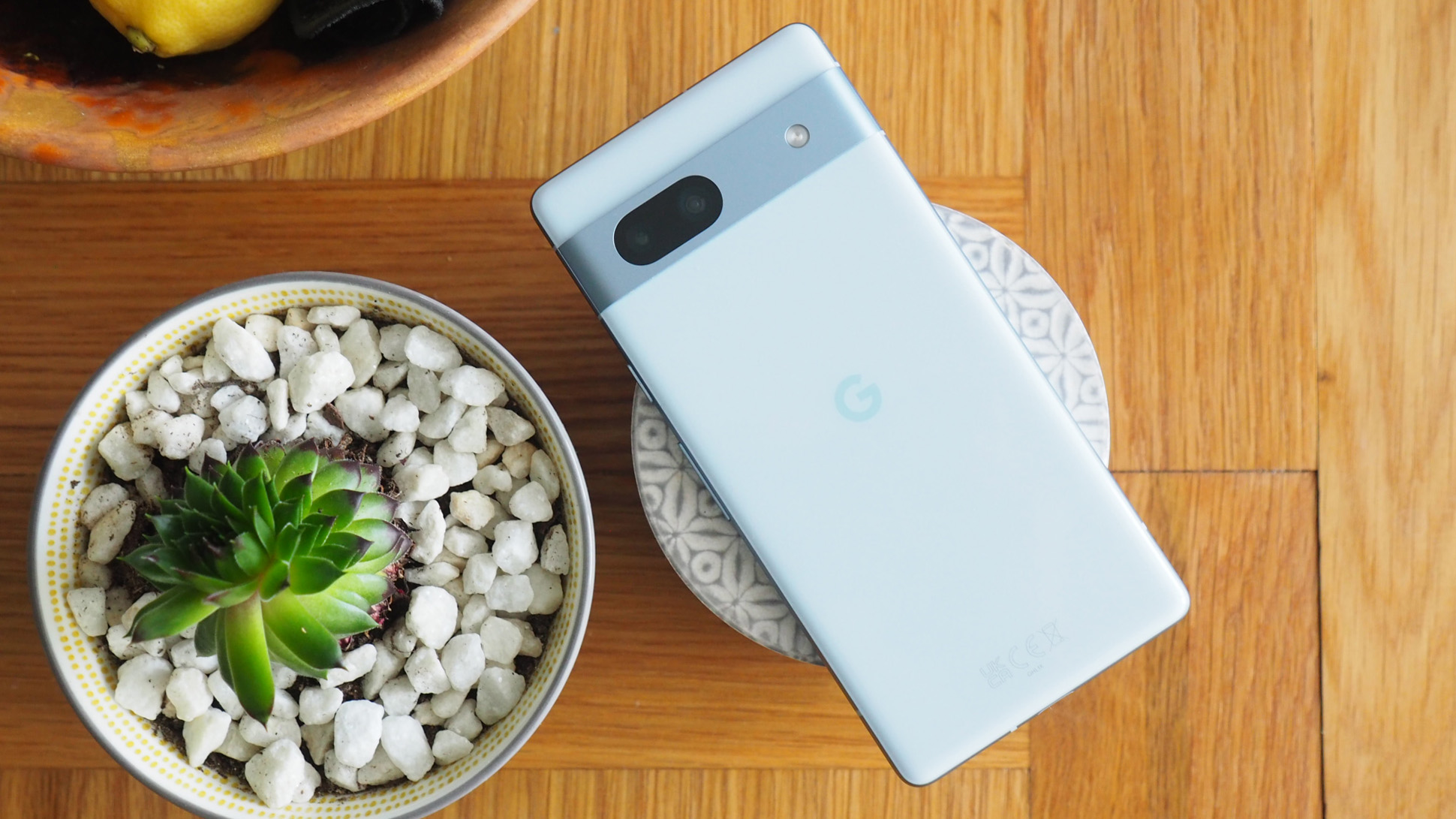
Due to being incredibly busy testing the best Android phones of late, I missed the first delivery attempt of my Google Pixel 7a review unit – the company's entry-level Pixel, as announced at Google I/O 2023 – and that actually made me feel sad.
Why so sad? Because I was excited to test out the Pixel 7a for as long as I possibly could to see if it's the best affordable phone of 2023. It's rare that a budget phone rouses genuine excitement, but with the Google Pixel 7 Pro my favourite handset of the past eight-or-so months, the 'lite' version was surely already on strong footing.
Not only that, with new colour options as part of the deal, I was keen to tear open the box (failing to produce an unboxing video in the process, oops) to see whether I had the all-new Coral finish (which wasn't available in the earlier and altogether more sedate Pixel 6a). Alas, no, it wasn't that version, instead the baby-blue 'Sea' one, but it does still look most fetching.
One week later I'm deep into Google Pixel 7a ownership and, aside from a few niggles here and there, that initial sadness has turned into great joy – for the entry-level Pixel is a real accomplishment that's like a ray of sunshine for affordable Android phones and, based on my review time, I think it'll be hard to beat...
Google Pixel 7a: Price & Release Date
Immediately after it was first announced the Google Pixel 7a went on sale. Just like that. It's priced at £449/$499, making it £/$50 pricier than its Pixel 6a predecessor, but, as I'll get to, there are plenty of new features in the latest model to justify the price bump.
That said, the earlier Pixel 6a is no longer anywhere near its £399/$449 original starting price, so if you're looking for an even more bargainous purchase then, well, that older Pixel handset is a very good shout indeed – as you can see from the real-time shopping widget below, comparing the two.
Google Pixel 7a review: What's new?
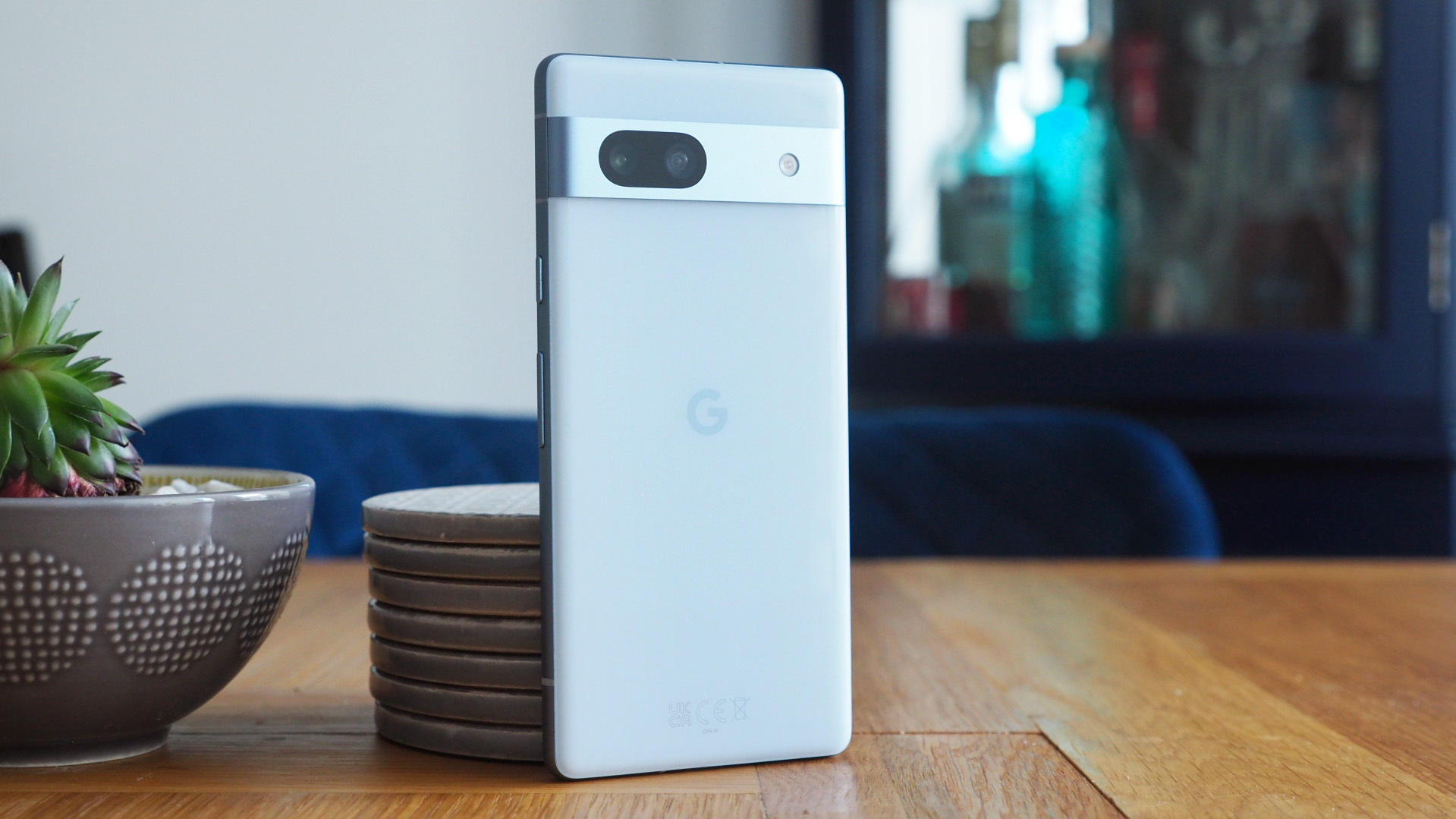
If you want a deep dive on the Pixel 7a versus Pixel 6a then a colleague has written precisely that to pore over the key differences between the two handsets. Here I'll summarise more generally.
The Pixel 7a brings an updated design that's a little chunkier than before, with a camera 'bar' to the rear that looks more like the Pixel 7 proper. That's because the Pixel 7a houses a new and improved camera system that's a fair step beyond its predecessor and requires more space in the design, hence the 'bar'. It does mean a minor battery capacity reduction, though, which is probably my greatest Pixel 7a gripe (more on that later).
I'd mentioned colour options up top, but the Pixel 7a's options of Sea (blue), Snow (white), Coral (pinkish) or Charcoal (blackish) add some verve to the look of 2023's handset. The Pixel 6a's more subdued Chalk, Charcoal and Sage options didn't have so much pop.
Inside the Pixel 7a features Google's Tensor G2 hardware, again an update over the Tensor G1 in the Pixel 6a, and the 2023 handset also bumps RAM by 2GB to 8GB total to ensure improved operation. Android 14 comes as standard, naturally, as Google Pixel phones are always the first to get the latest Google software.
The final key change of the Pixel 7a is that the display, while being the same 6.1-inch scale OLED as its predecessor, now offers a 90Hz refresh rate for smoother visuals. It was only 60Hz in the 6a, which when it launched felt a little behind the competition.
Google Pixel 7a review: Design & Display
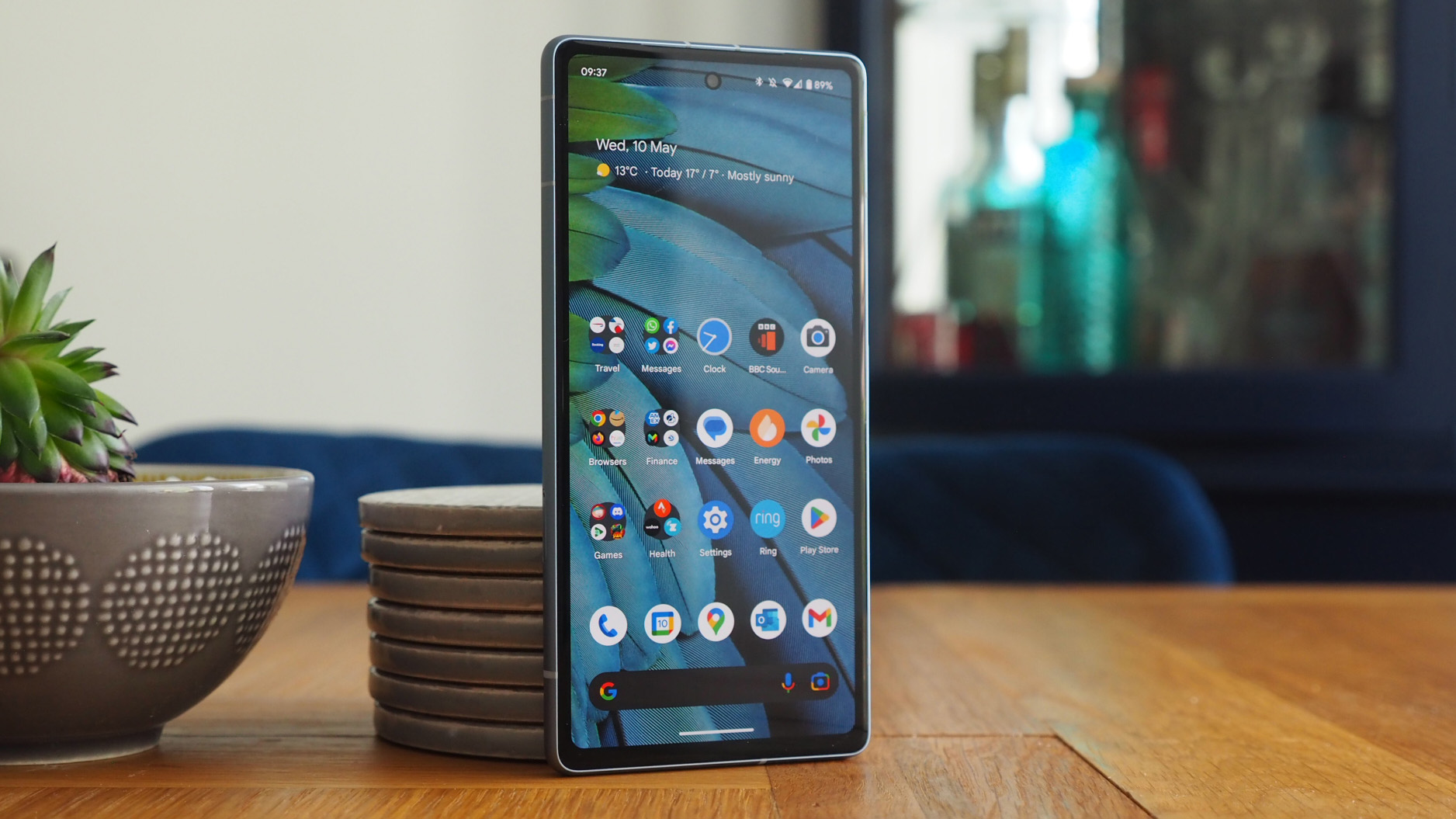
Visually I think the Google Pixel 7a looks great for the most part. That Sea finish on review is light and airy, which projects a certain lightness about the phone. That said, its 193g weight is approaching 10% heavier than its predecessor, and having held the Pixel 6a side by side it's certainly noticeable.
But while the Pixel 7a feels a bit chunkier compared to its predecessor, it's still a small and light phone – certainly an option if you're looking for one of the best small phones – especially compared to the massive flagships of today. So if you don't want a behemoth in your pocket then Google's latest fits the bill.
The 7a's display is flat, so no curves to concern yourself over here. That's great to avoid accidental touch and prevents any contrast fall-off to the edges. However, it does mean the edges look bigger, as the black bezel is more pronounced that I've seen on many other phones (usually owed to a subtle curve of the glass). It's a minor point, but it's a current Pixel point: Google seems to like its bezel.
The display itself is a 6.1-inch OLED panel replete with 1080 x 2400 pixels of resolution to look sharp as you'll ever need. The addition of a 90Hz refresh rate feels essential now, and while it's not 120Hz for ultra-smoothness (even Motorola is up to 144Hz now in its Edge 40 Pro and other handsets), I actually think this middle point is sensible for Google – I'd be worried about the battery life if a yet faster refresh rate panel was added into the equation.
Insofar I've not caused any damage, lumps of bumps to this Pixel 7a review unit – although with Gorilla Glass 3 on the front it's not the latest; although the plastic-coated rear should remain nice and smooth. Google does not include a case in the box (but you can buy official ones separately, which are colour matches) and there's no wall socket either – only a USB-C cable, a USB-A-to-C converter, plus a little package with SIM tool and warranty booklet inside.
Google Pixel 7a review: Performance & Battery
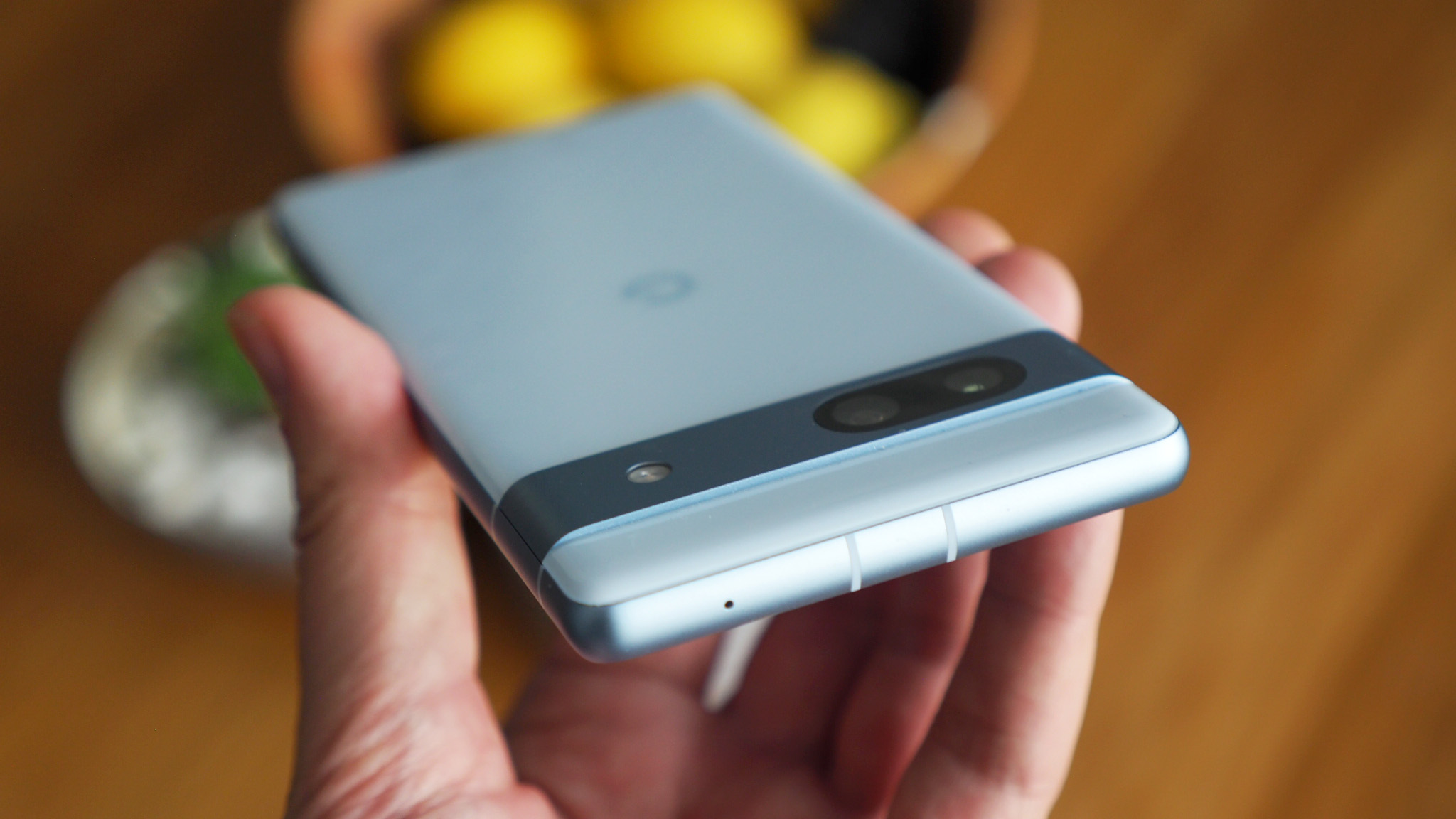
When it comes to longevity I think Google is, well, "a bit Google" in the way it handles battery life. Take the Google Pixel 7 Pro, for example, which started off abhorrently in terms of battery per charge, but then improved over time, then had a bit of a shaky dip following an update, but eventually found its footing – and I still use as a go-to device quite happily.
With the Google Pixel 7a I wouldn't be surprised if it's a similar story: I've found the battery life thus far to be somewhat sketchy, pushing me through 14 hours of use only on some days. But it fluctuates, and my usage is heavy (with Bluetooth, GPS tracking, screen-on time for Zwift Companion, gaming, and more). Fortunately, now I'm coming to the end of week one living with the 7a, it's settled down and now it's acceptable, providing around 16 hours including all of the above usage – but battery life is certainly my biggest gripe about the phone overall.
Now, there are a bunch of various options within Google's settings to try and extend battery life. And you'll want to use them. The first is Adaptive Battery which, as it suggests, "extends battery life based on your phone usage". There's also Adaptive Charging, but I'd avoid this as while I appreciate anything that's going to aid battery health over the long term, I've woken up plenty of times to a battery charged to a mere 77% – and as charging speeds, at 18W, aren't fast at all anyway, that's not so easy to correct for when you need to get up and go. It's also possible to switch to 60Hz only (turning off 'Smooth Display'), as 90Hz does add to battery drain.
So it's taken me a little adapting on the battery front, that's for sure, but I suppose part of my own problem is that when a phone that's apparently so entry-level has this much power, you're not really stopped from doing everything. The Tensor G2 chip on board is impressive, allowing you to run anything you wish really. I've been playing Mighty Doom a bunch, and while that generates some heat (not too much though), it runs super well.
To put it in perspective: the Pixel 7a is in essence the same power as the Pixel 7 from late 2022. It's got the same processor, same RAM, same screen refresh rate. It's just a bit smaller, a bit lighter on battery, and uses pared-back materials by comparison. But given the price difference, that all adds up to making the Pixel 7a a really powerful phone that's punching well beyond its purchase price would suggest.
I should also, but of course, mention Android 14. That'll be coming to Google Pixel first, so expect a fairly swift update when the software is out of beta later in 2023. But even as it stands the Pixel 7a runs Android 13 wonderfully; there's no excesses, no bloat, no pop-up adverts, no WTF pre-installed apps. It's just clean and easy (except I do wish Wi-Fi control wouldn't live in the same section as mobile data, but oh well).
Google Pixel 7a review: Cameras

- Main camera: 64MP, 1/1.37in size, f/1.9 aperture, optical stabilisation (OIS)
- Wide-angle: 13MP, f/2.2, 120-degrees field of view
- Selfie: 13MP, f/2.2
On to one of the Pixel 7a's best features: its cameras. Housed in that rear 'bar', the main camera is a very different beast to the phone it updates: the sensor size in particular is now much larger, almost double that of what you'd find in an iPhone SE, for example. That's big news – and it shows.
The resolution is also significantly increased, now 64-megapixels, although Google uses a tried-and-tested '4-in-1' process, so results actually come out at 16MP. That's pretty much the norm for phone cameras these days, providing more sample sources for increased dynamic range and colour accuracy in the end result.

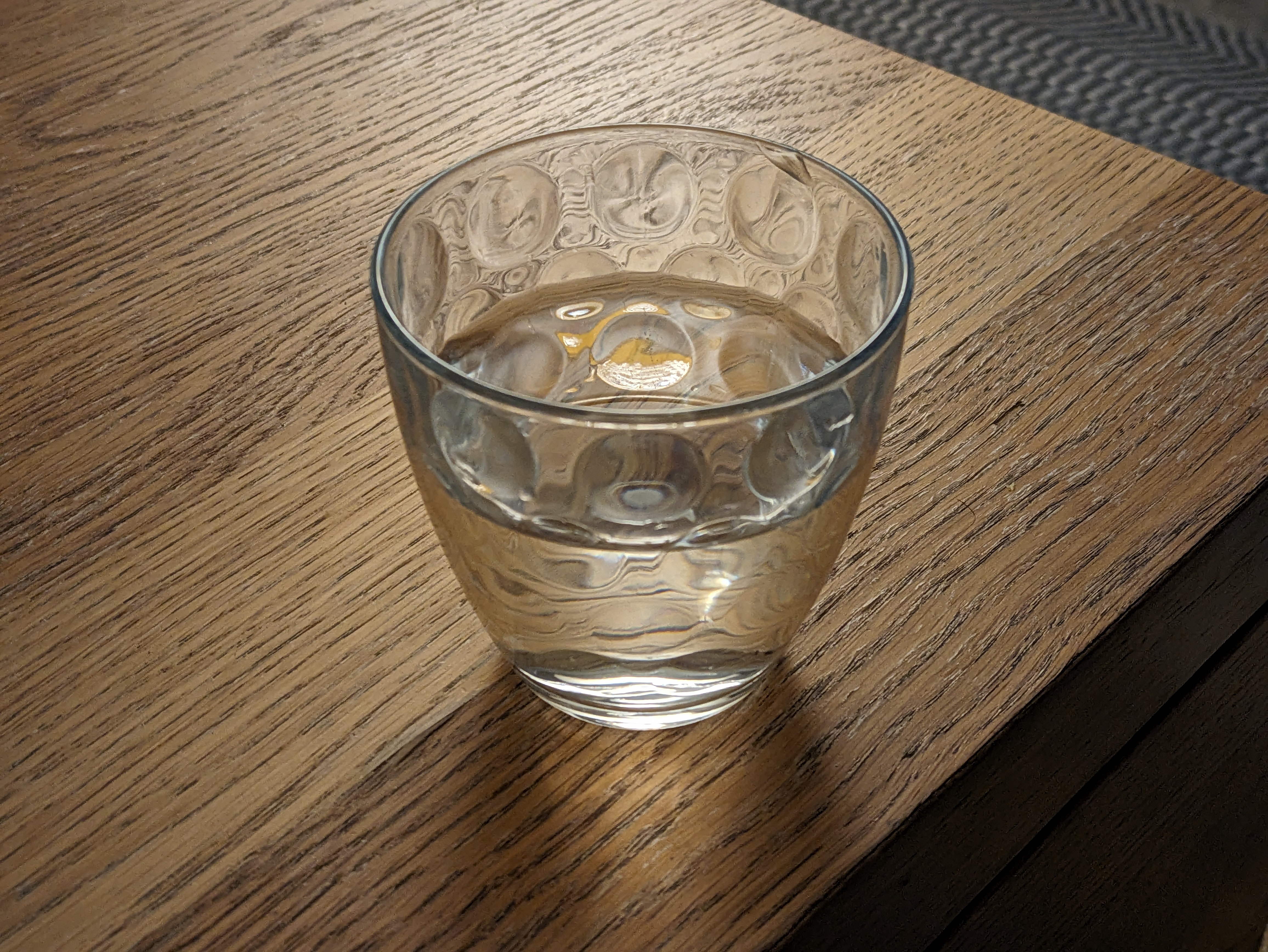
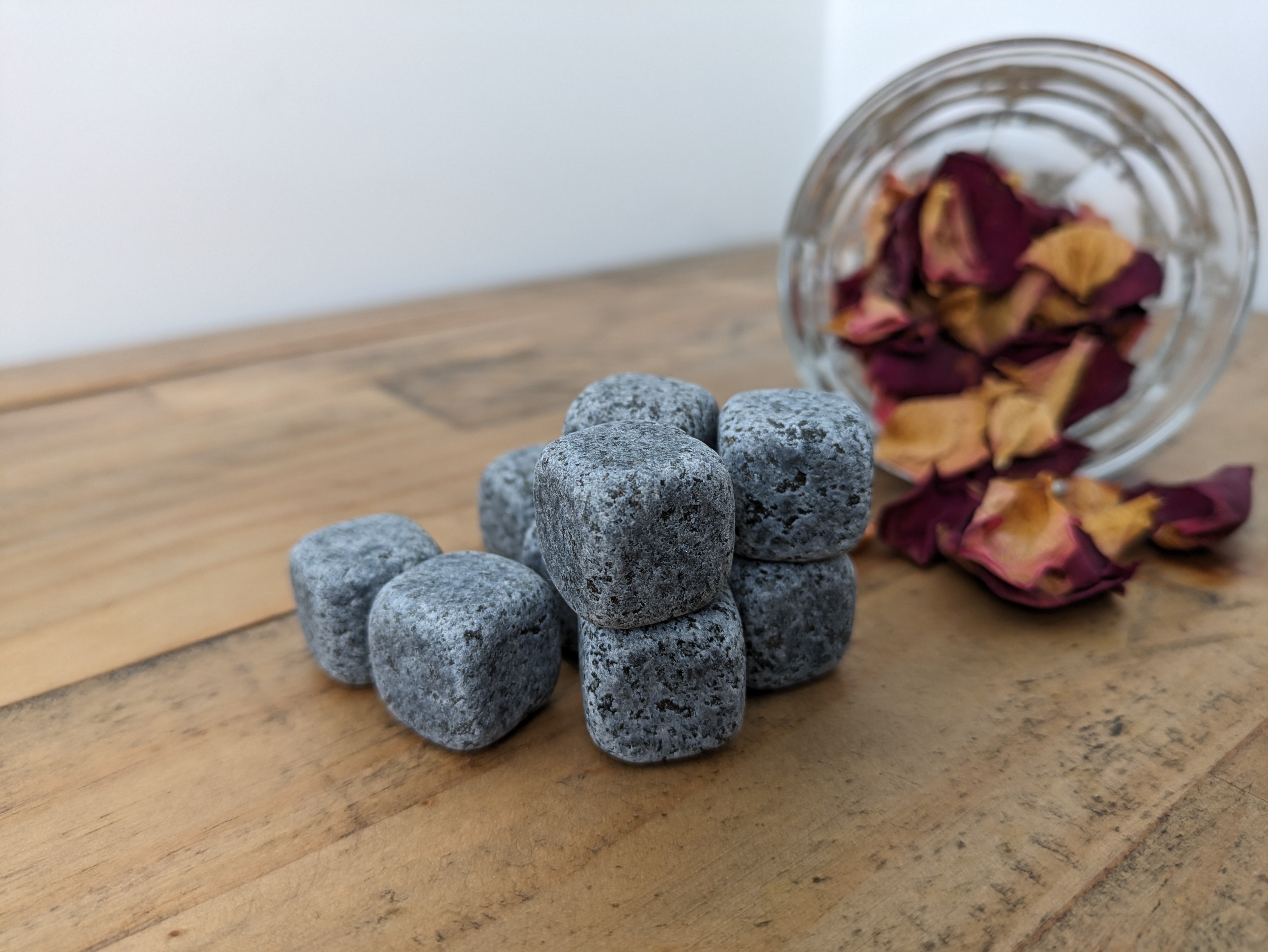
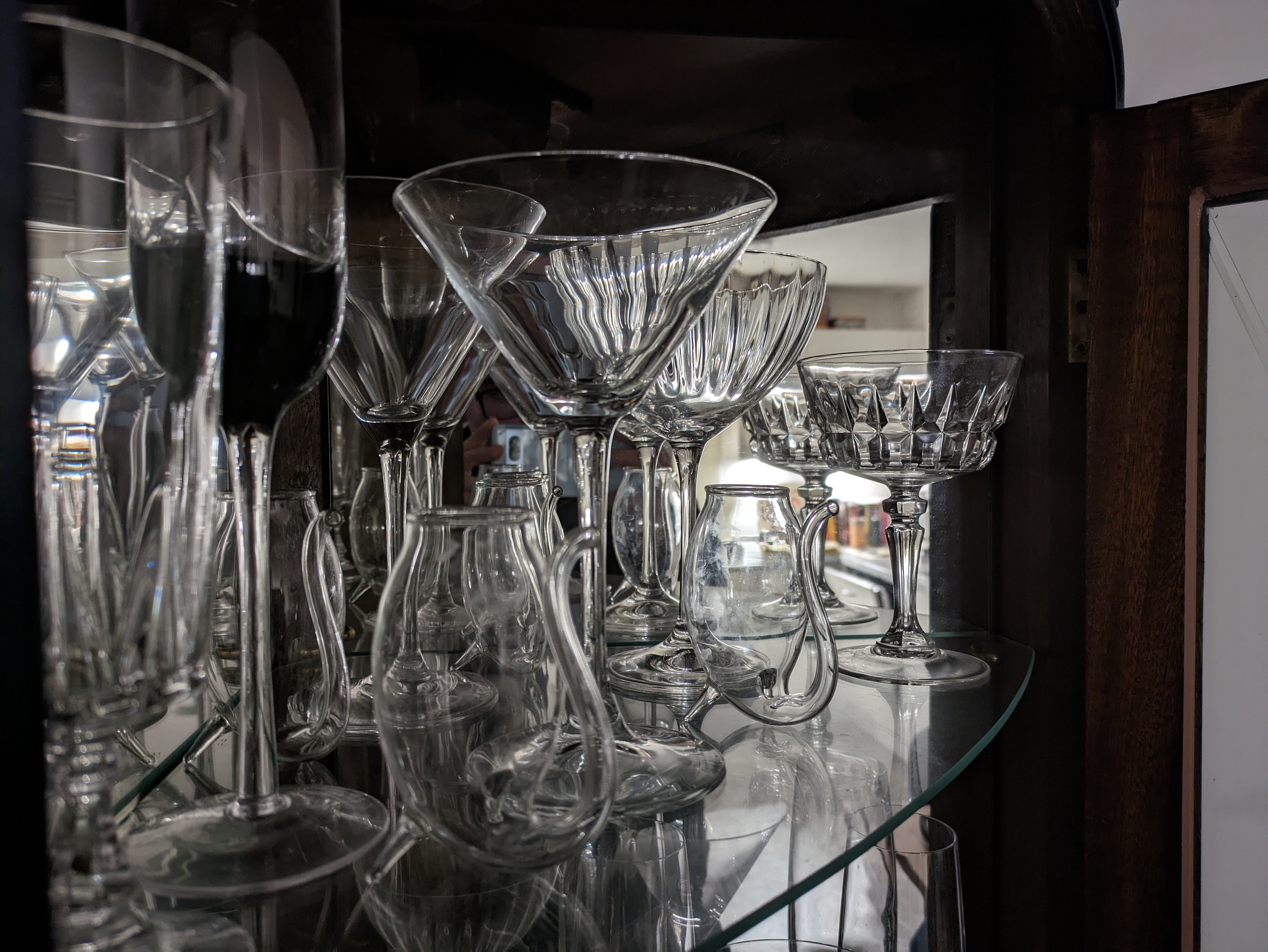
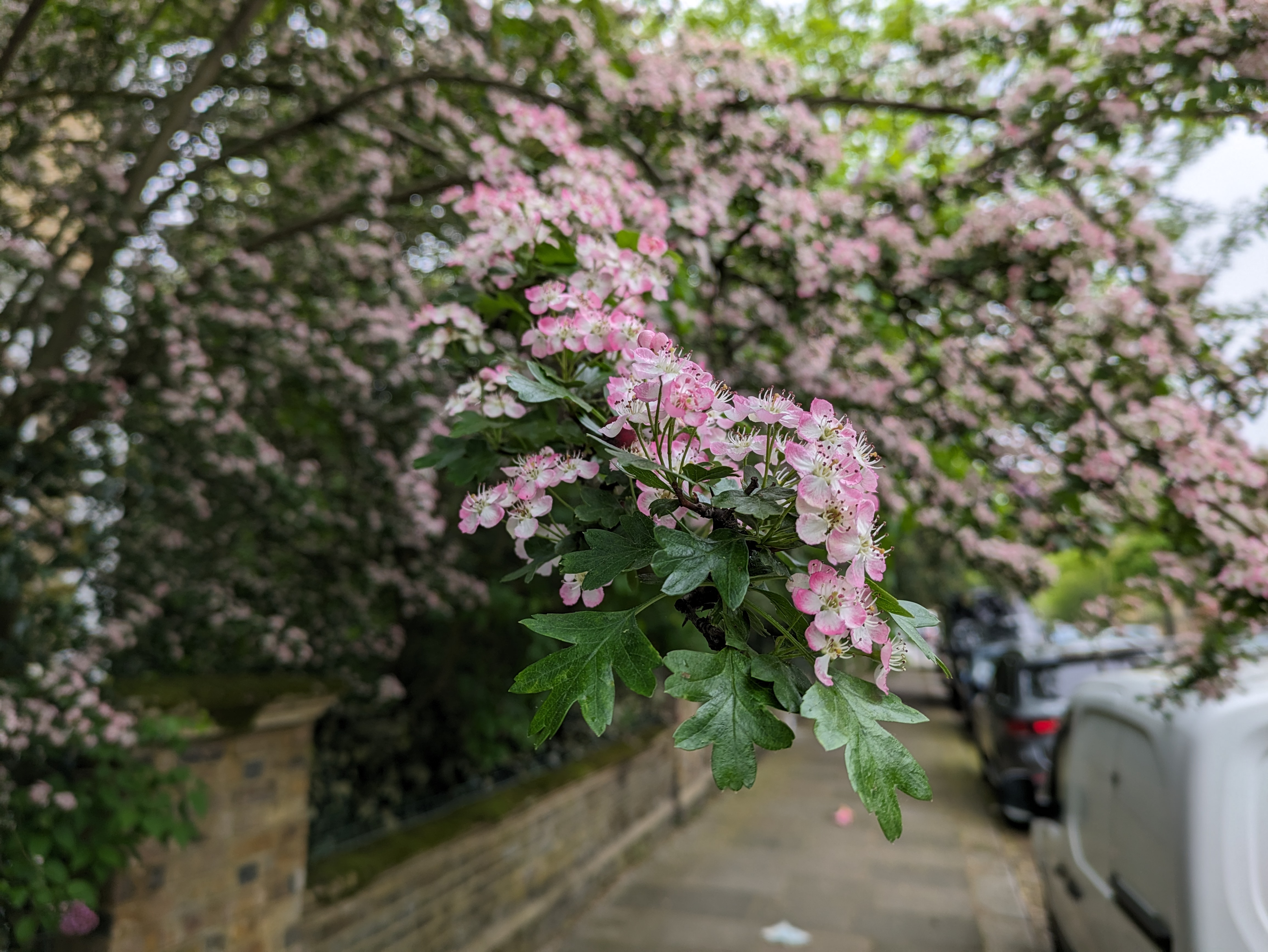
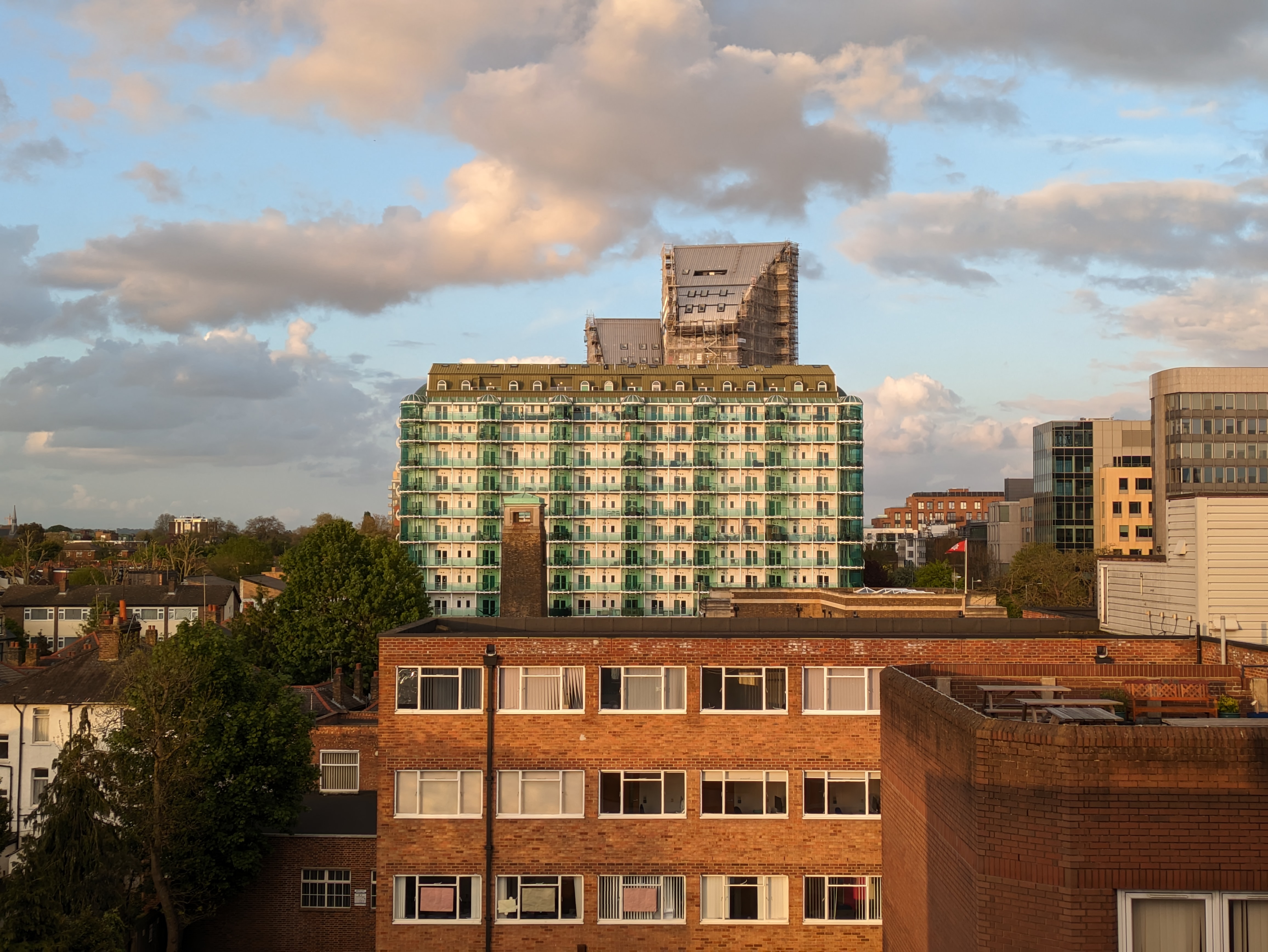
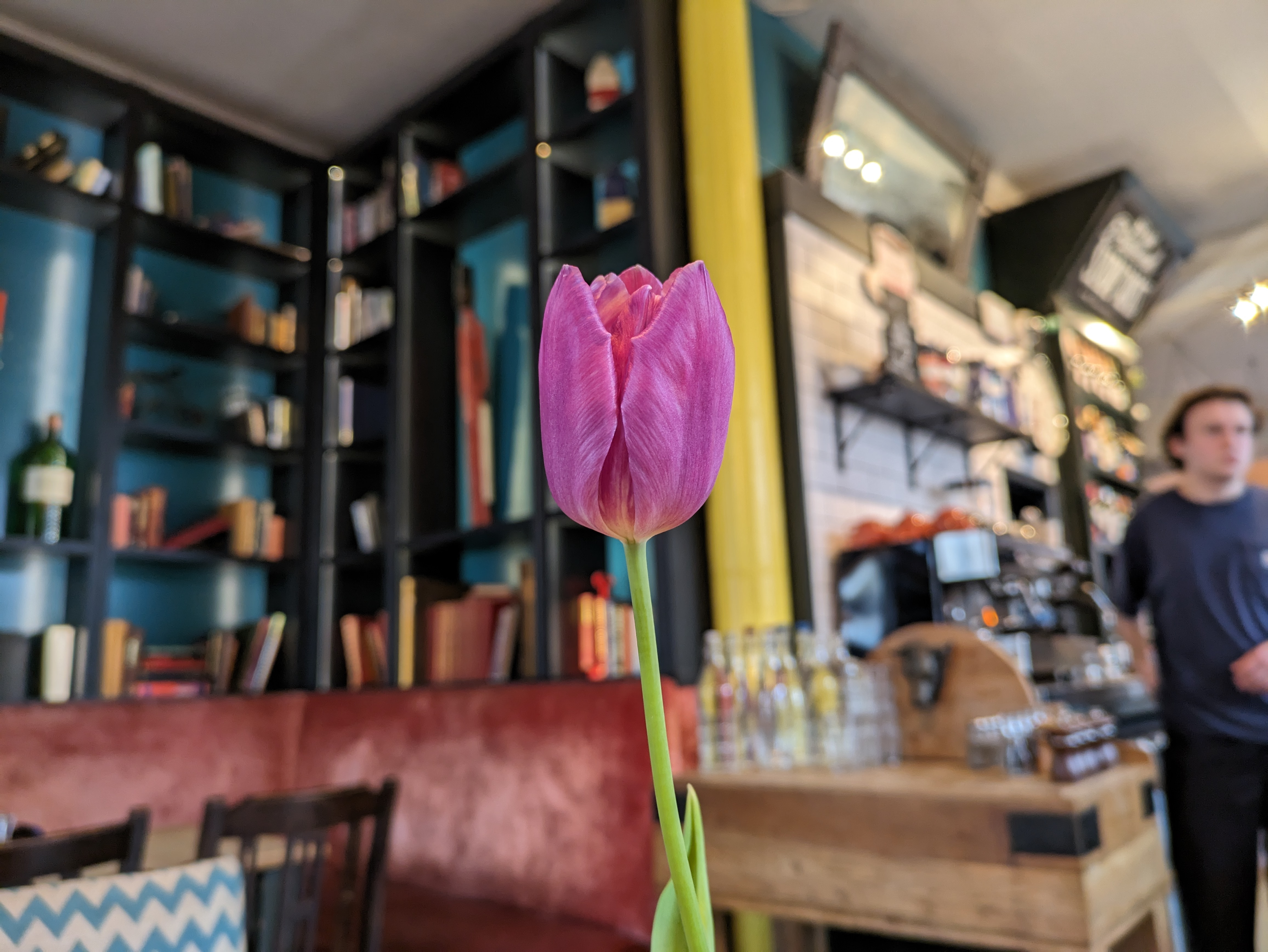

Having that main sensor being so large is really beneficial to low-light shooting. Google is already well known for its computational capabilities when it comes to night shooting – and there's still a Night Mode that automatically prompts you with a 'half moon' symbol – and the 7a really takes this and runs with it. The photos of glassware in the above gallery were taken in very low-light, to the point I'd struggle to see with my eyes, and the camera just enhances them so well.
In addition the main camera features optical image stabilisation (OIS) which is yet another essential to keeping things nice and steady, ensuring sharpness even when handheld for more extended periods than typical. It makes using a camera that's already easy to use even easier.
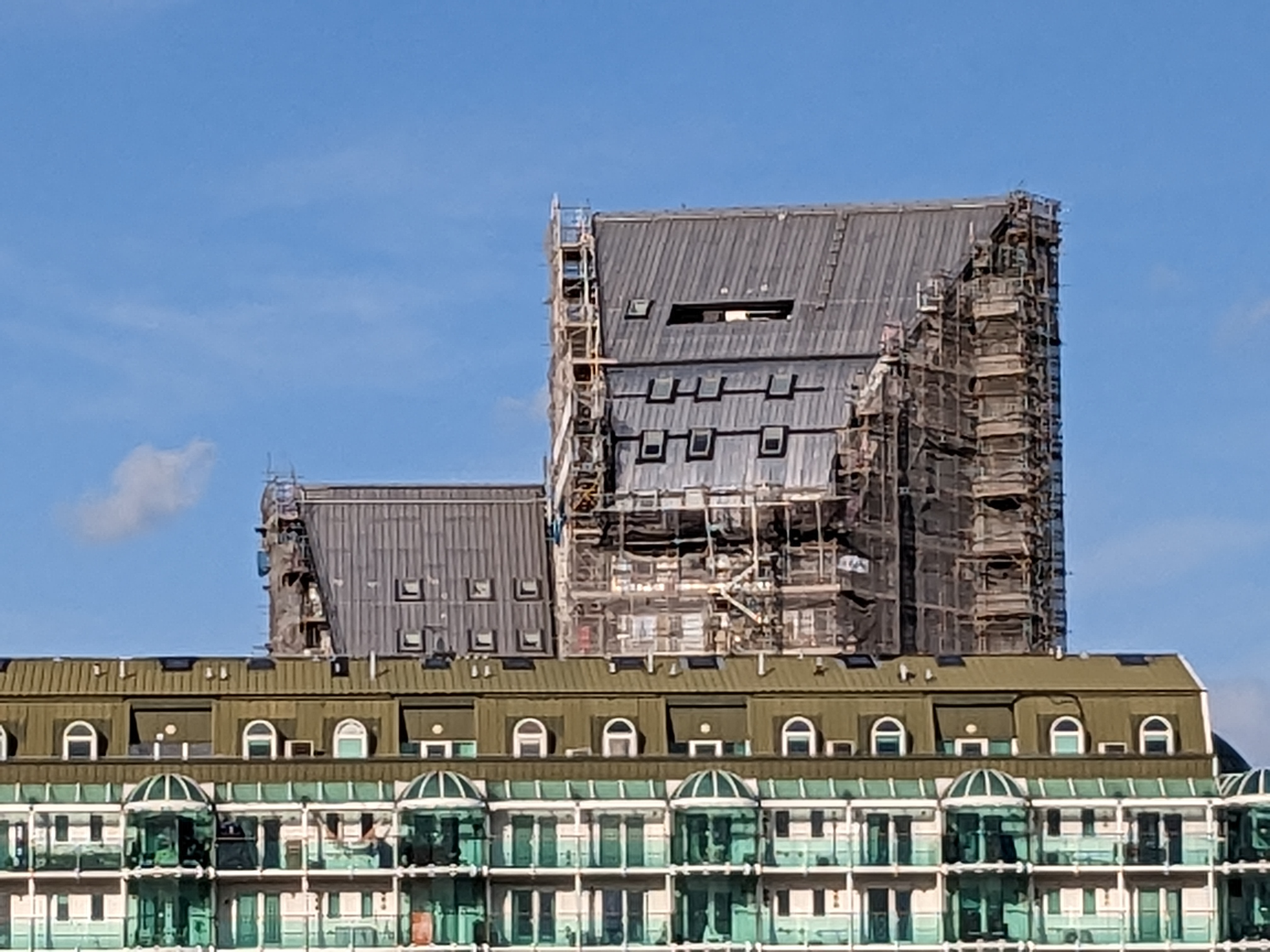
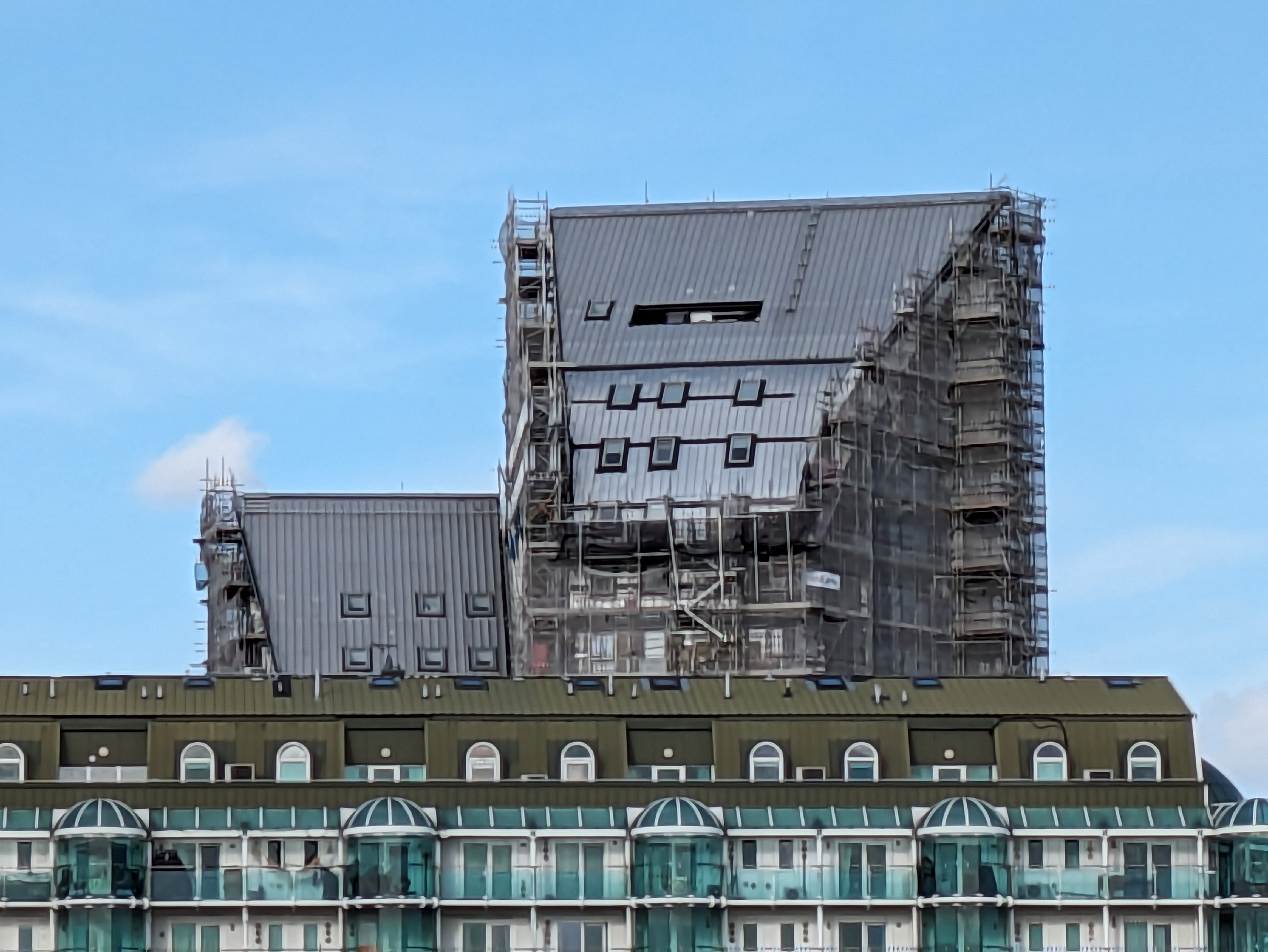
The main lacking of the Google Pixel 7a's cameras is, as you'd expect, there's no optical zoom lens. You're just not going to get one at this price point though, so I'm not surprised or disappointed by it. Besides, the 2x zoom, which uses digital and the allowance of that high-resolution sensor, works pretty well – and you can push things to 8x with still usable results, as my colleague wrote about in his Pixel 6a vs 7a piece (comparison gallery included above).
I must say that the 7a's wide-angle, while improved over its predecessor, also isn't as strong as the main camera. Again, that's to be expected, and at least Google brings consistency between the different optics that works well. If you're wanting the very best wide-angle cameras then, well, you'll need to spend much more and look towards the Xiaomi 13 Pro and Xiaomi 13 Ultra.
Overall, though, I love the simplicity and the capability of the Pixel 7a's camera arrangement. At this price point you're not going to find consistent competition that can really match it with ease, which is one of Google's major strengths and yet another reason to consider this phone. I'm impressed.
Google Pixel 7a review: Verdict
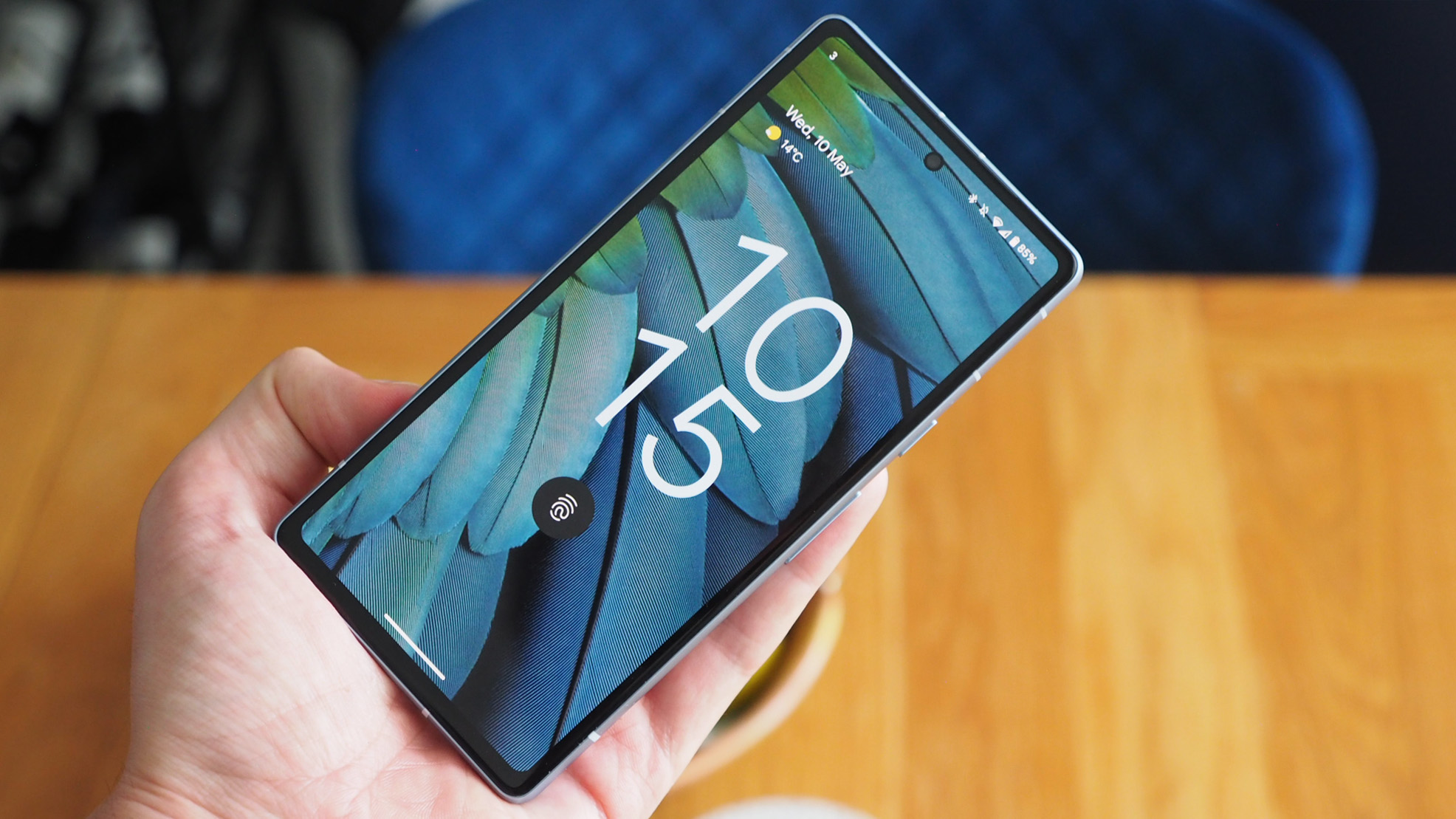
After some battery wobbles that had me temporarily concerned, I've quickly come to regard the Google Pixel 7a as a champion among affordable Android phones.
My initial excitement at receiving one – a rarity for budget phones, as you can well image – has been well-rewarded over the past week of living with this phone as my own. It's got impressive power, impressive cameras, is available in impressive colour options, and few other Android devices will impress you as much at this price point.
Yes, the screen's edge bezel is a bit bold, the battery life is only just acceptable, charging is slow, and the price has increased compared to its predecessor – but that's all forgivable as there are enough upgrades in this new handset that make it a pleasure to use.
I'm convinced: the Google Pixel 7a is hands-down the best affordable phone you can buy right now.
Also consider
Savvy as the Pixel 7a's price is, there are of course competitors. The most obvious is, you guessed it already, Google's own predecessor: the Pixel 6a. Survive with the lower refresh rate and cameras that are not quite as good (but still impressive) and the big money saving might be a temptation.
If you're not into Android then the iPhone SE is the only logical Apple option, although this does now feel dated to me. And if Google isn't your go-to then I'd suggest the Samsung Galaxy A54 is a viable consideration too – but both Apple and Samsung will cost you more.







